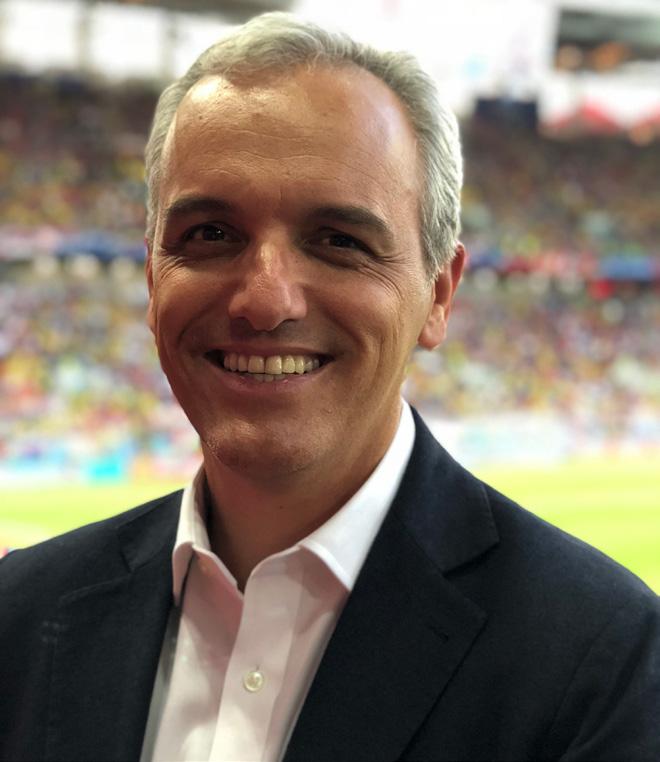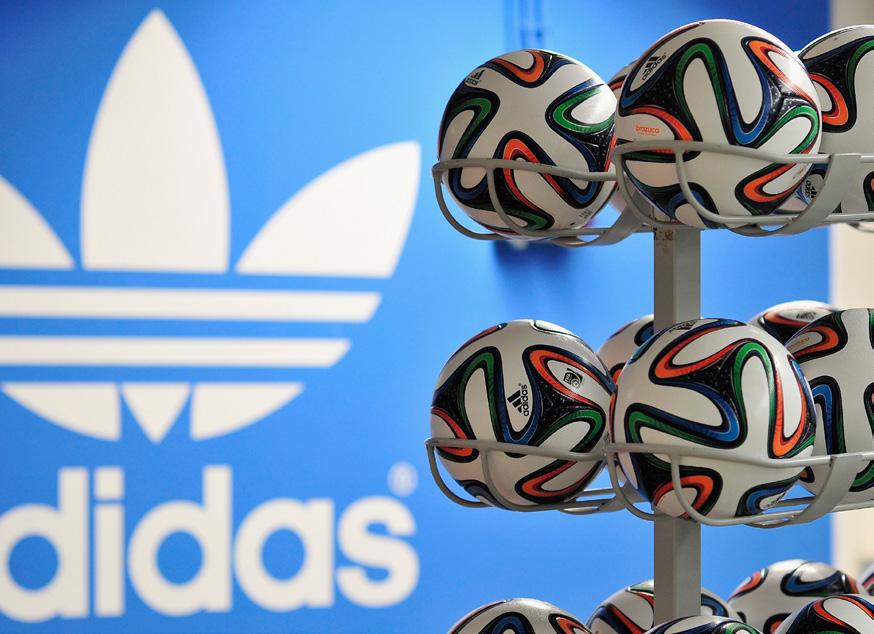
7 minute read
The changing face of sports sponsorship in a post-pandemic world
With the global rights market looking to recover from the COVID-19 pandemic, Ricardo Fort draws on his experiences with advice for how rightsholders can collaborate to identify a mix of assets that fit the sponsors objective and the importance of investment into sports sponsorship.
The impact of the pandemic has been vast, with almost every activity associated with sport affected in some way. In addition to the break in play, brands and rights holders have also had to adapt and embrace their digital platforms and identify new ways to connect with their customers in the absence of physical events. However, as a result we have seen rights holders produce some amazing content that will long be remembered beyond the pandemic.
Advertisement
“The rightsholders were forced to adapt quickly to the limitations the pandemic imposed upon them because of the absence of the events. The need to deliver value to their partners pushed them to develop creative alternatives,” began Ricardo.
“So, they created a lot of digital content intending to keep fans interested during that period of time when live sports were not happening. Many of them did a very good job, such as the IOC with the Olympic channel and FIFA showing historical matches. A lot of organisations were already producing content, but the pandemic accelerated the volume and the quality of the work.
“The same thing happened with athletes. In general, they increased their presence in our lives in the last year because they were just more active on social media, teaching and sharing new things and engaging at a level we haven’t seen before. All of that created a lot of new content that brands were able to use to keep their marketing alive and fresh during a time when live events weren’t happening.
“The dependency that most brands have had for live events, was a problem. One of the lessons of the last year is that we learnt how to think different. Hopefully there will be a time soon where we will have both of these alternatives – still able to do something related to live events and the legacy work on the digital content production. The next few years in sports marketing will be more interesting because we will have more tools to play with.”
While the delivery of sponsorship activity evolves, Ricardo doesn’t believe that the way in which deals are valued and the measurement of success will change after the pandemic.
“Brands investing in sports must focus on how much their investments are impacting their business growth. After all, this is the only thing that matters at the end of the day,” he explains. ➡


“It doesn’t really matter how remembered you are or how much your brand was associated with the event, how great your advertising was – if the business is not growing then that investment is worthless.
“Many marketers are distracted by the passion for sports and end up doing things that are great for the sport and for the partner, forgetting that they work for a business that has very specific objectives.
“When I was working for Coca-Cola, I always had it clear in my mind that my job was to sell beverages. When I was working for Visa, my job was to get the banks that work with Visa to issue more cards and the cardholders to use their card more often – not how successful the competition was going to be. That shouldn’t change regardless of the pandemic.
As Coca-Cola’s Vice President of Global Sports Partnership, Ricardo oversaw one of the largest sports and entertainment sponsorship portfolios in the entire industry including large-scale alignments with the International Olympic Committee, FIFA and Major League Baseball, to name a few. Drawing on his experiences, Fort highlights what rightsholders can do to improve relationships with their partners.
“The first thing, which is not an easy task, is to understand what matters to the companies. How the companies speak, how they invest, how they are going to grow, and which areas are important for them. Then, looking inside their own organisation and coming up with ideas, tools and projects that can allow the partners to do what they need to do.
“For example, I was watching the Adidas board presenting online the results for last year. When you hear their CEO speaking, you clearly understand what they are trying to do for their business: Which are the areas they are trying to grow, which are the cities that are going to invest and how they look at their company. You can find the same information for pretty much any company.
“Good rightsholders should be watching Adidas’ annual results presentation, taking notes and thinking ‘If they are saying they need to grow in that part of the world, what do I have to offer there? Can I bring my events there? Can I use my athletes and my other assets in that region that will allow them [the brand] accomplish that?
“A good rightsholder is competent in what they do, and always looking for ways to help their to their partners and thinking ‘how can I help them do what they want to do?’
“They do it by being informed, paying attention to what is happening at the




partner’s business, constantly and proactively communicating with the partners, and not just collecting a cheque.”
Companies in all fields are turning to sport to drive awareness of their own products, with increasingly impressive results. Sports sponsorships wield transformative power that is capable of driving exponential growth in brand awareness and affinity.
“If you look at the most valuable brands in the world and how much they invest in sport, you see a strong correlation. This is no coincidence,” Ricardo emphasises. “Being associated with things that people care about makes them more relevant, more consumed and more valuable. Over and over again, you see brands that come from nothing and thanks to their investment in sport they become global powerhouses.
“When Visa signed up to become an IOC Olympic sponsor in 1988, Visa was a much smaller brand and by no means a leader in the payment services category. The Olympic Games have been one of their major engines to turn the Company into the global leader they are today.
Coca-Cola has been doing this for over a century. First with the objective to expand to new territories, then to build awareness and lately to drive engagement. If you are a global brand involved with global events, that gives you a fantastic platform to tell stories to a lot of people at the same time.
“In all these events that drive global interest, brands have the opportunity to create scalable programmes that all the countries in their network can implement, so that is also a very effective way of marketing. That’s a smart way to invest and why so many big companies do it.”
Ricardo has now made the decision to move on from Coca-Cola, his dream job since a young age, to set up his own consultancy firm ‘Sport by Fort’ in order to help investors, sponsors, rightsholders, and athletes to build the right sports partnership.
A veteran global sports marketer with prior positions at Visa, Groupe Danone, Kellogg’s and Unilever across three different continents, Fort has a good understanding of what sponsors need and what rightsholders should do to be more effective.
“Having worked with so many sporting organizations and seeing them excel in different areas of their businesses, I have developed a good understanding of what are the things that make a rightsholder operate better for their partners. I know how to help them improve in their commercial strategy and sponsorship sales,” Ricardo humbly explained.
“I am confident I can help them package rights better than most people because I have seen so many that have worked and so many that haven’t. My goal is to use all the experience I have had with global companies to help other big companies to sign better deals when they are looking to get involved with sports, but also to work with the rightsholders to be more effective in how they approach partners.
“There are also a few other areas of personal interest to me. The two most exciting ones today are the investors, mostly in North America, looking at assets like clubs and media rights and the sports tech start-ups working to scale-up their businesses.” ◆










